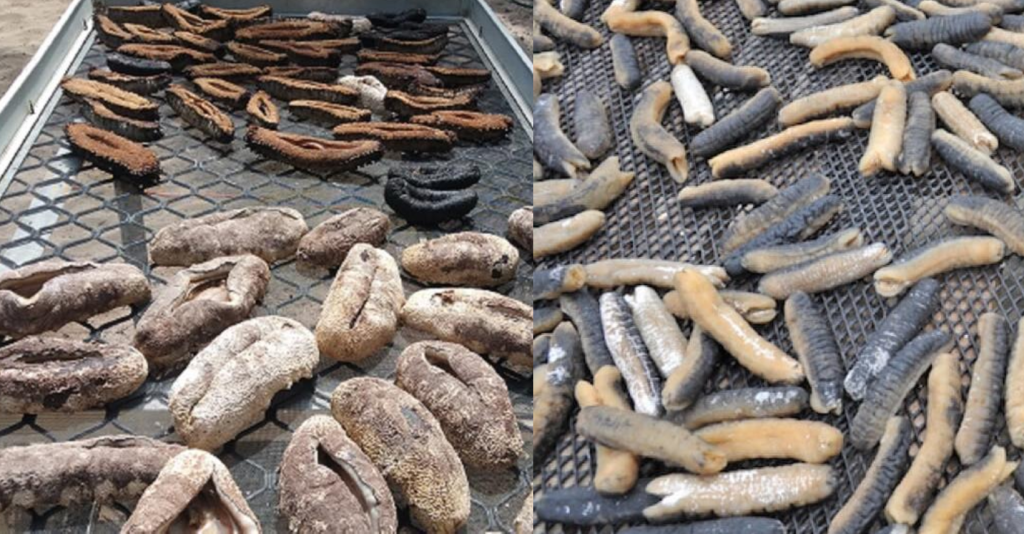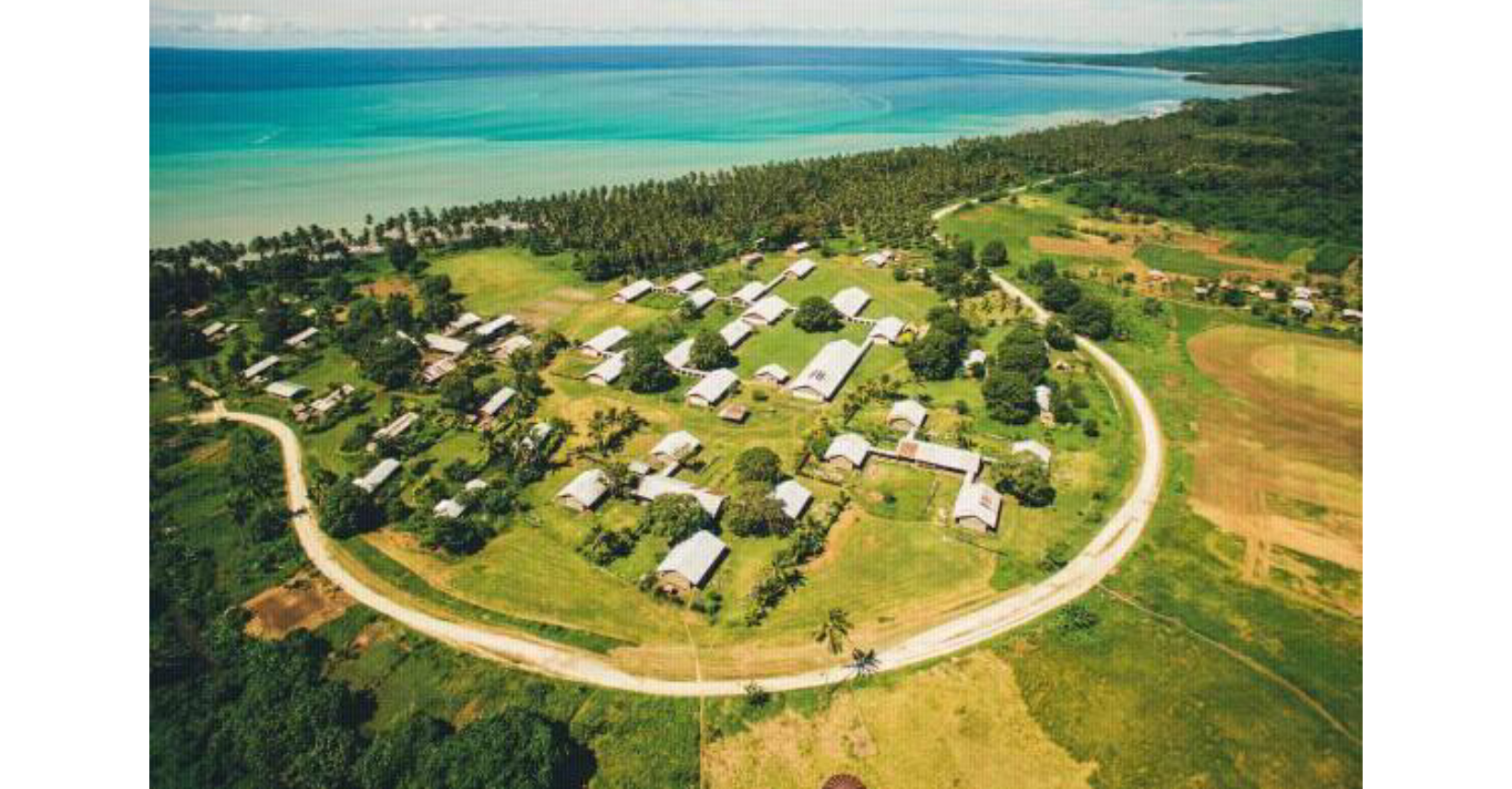An alleged illegal cross-border trade of beche-de-mer between Bougainville and the Western Province has raised serious concern among authorities and local communities in the border region.
Reports reaching the Solomon Star revealed that within two weeks, at least 10 boats from Bougainville have crossed the far western border into Solomon Islands waters through Lofung in the Shortland Islands, transporting between two to three tonnes of beche-de-mer.
According to sources familiar with the operation, the boats are reportedly bypassing official border checks and offloading their cargo in Taro, Choiseul Province, and Gizo, the Western Provincial capital.
Sources have revealed that the illegal cross-border movement of beche-de-mer between Bougainville and the Western Province has been quietly taking place since last year and recent months, following the reopening of the Solomon Islands’ beche-de-mer harvesting season.
“This activity has been happening quietly since last year when the Solomon Islands reopened its beche-de-mer season,” a source told the Solomon Star.
“In Bougainville, the beche-de-mer harvest has been closed for several years now, so traders are crossing over to sell their products here,” the source added.
The source further claimed that large quantities of beche-de-mer are being smuggled across the border into Solomon Islands, despite the presence of a border checkpoint in the far western region.
This raises questions about the effectiveness of enforcement by Marine Police, Immigration, and Customs officers stationed in the area.
“There seems to be little or no monitoring happening at the western border,” the source said. “If these boats are managing to pass through with two –three tonnes of beche-de-mer undetected, then the system is clearly weak.”
Community leaders in Gizo have echoed similar concerns, calling for stronger surveillance and enforcement along the border.
“If it is true that Bougainvillean traders are crossing the border unchecked, then this is a serious security issue,” Norid Dennis , a concerned leader in Gizo said.
“The monitoring of our checkpoints must be strengthened to protect our national interests and to comply with international laws.”
In recent months, there has been a noticeable increase in the movement of people from Bougainville into the Western Province, raising both economic and regulatory concerns.
While the connection between Bougainville and the Western Solomons is deeply rooted in shared traditional and cultural ties, cross-border trade between the two island groups is not new.
For decades, traders have travelled between Bougainville, the Shortlands, Choiseul, and Gizo to exchange goods such as outboard motor (OBM) engines, fiberglass ray boats, and other commodities — often in exchange for goods and cartons of beer.
In Gizo, the presence of Bougainvilleans traders has become increasingly visible. Many locals say their arrivals are more frequent, particularly since the reopening of the beche-de-mer harvesting season last year.
With the current open season, local and foreign buyers — particularly from Chinese-owned business houses and retail shops — have become key players in the trade.
Fishermen from across the province now bring their catches to town, selling them for much-needed cash to support their families.
However, sources have revealed that beche-de-mer from Bougainville is also being sold in Gizo to both local and Chinese buyers, despite the Bougainvillean government still enforcing a ban on its harvest.
This situation has sparked public concern, with some citizens questioning whether such cross-border trade breaches Solomon Islands’ fisheries laws or international regulations under the Ministry of Fisheries and Marine Resources (MFMR).
The illegal trade has raised serious concern among border authorities and prompted the Ministry of Finance through the Customs and Excise Division to issue a strong warning to all local and foreign sea cucumber buyers and agents in Gizo and the Western Province.
In a formal notice dated 9th September 2025, addressed to all Sea Cucumber Buyers and Agents in Gizo, Western Province, the Ministry of Finance, Honiara, warned that the purchase or handling of sea cucumbers from Bougainville is unlawful and must stop immediately.
The letter subject – Unlawful Purchase of Sea Cucumbers from Bougainville – Immediate Cessation Required
In the formal letter issued by the Ministry of Finance H.M Customs & Exercise Division issued mainly for Agents and Buyers both locals and Chinese it stated; “It has come to the attention of the responsible authorities that certain individuals and agents operating within and around Gizo are engaging in the purchase of sea cucumbers collected from Bougainville, Papua New Guinea, without following the proper legal and Customs clearance procedures.
“Please be reminded that the importation or purchase of foreign commodities, including sea cucumbers from any external sources, must strictly adhere to the laws and regulations of the Solomon Islands.
“Any product brought into the country or province without appropriate Customs clearance and licensing is considered illegal.
“One or more of the following legislations are being breached by individuals who may be engaged in such activities:
“Biosecurity Act 2013 (Solomon Islands), Fisheries Management Act 2015, Immigration Act 2012, Customs and Excise Act (Cap. 121), the advisory stated.
It added the unauthorized importation of goods (including marine products) without customs declaration and clearance constitutes smuggling and is punishable under this Act.
“We hereby issue a formal notice to all local and foreign buyers operating in and around Gizo:
“You must immediately cease the purchase, handling, or trade of any sea cucumbers that have been collected from Bougainville or any other location outside of Solomon Islands if such products have not been cleared through the appropriate Customs and biosecurity procedures or any other laws.
“Any local buyer or agent found to be engaging in the purchase of illegally sourced sea cucumbers or may assist in any such manner will be held accountable as a party to the offence and will face legal action under the relevant laws mentioned above.
“We urge you to exercise due diligence in verifying the legal origin of all marine products before engaging in transactions.
“The responsible authorities will be conducting inspections and investigations, and any breaches will result in penalties, license cancellation, or prosecution.
“Your cooperation in upholding the laws of Solomon Islands and protecting the integrity of our territorial borders is highly appreciated,” the letter issued by Customs in Western Province concluded.
A senior Customs officer in Western Province has raised serious concerns about the growing defiance of Bougainvillean beche-de-mer traders who continue to cross illegally into Solomon Islands waters through the Western border.
Speaking to the Solomon Star, the officer said several attempts by Customs and Police personnel to stop and inspect the Bougainvillean boats have been met with hostility.
“Several times when police officers at the border tried to intercept them, the boats managed to escape before reaching the checkpoint,” the officer said.
The officer explained that such behaviour violates proper customs procedures, which require all foreign vessels to declare their goods upon entering Solomon Islands waters.
“Under customs regulations, they must declare their products, but this has not been happening at all,” the officer added.
It has also been revealed that proceeds from the illegal beche-de-mer trade are being collected mostly through hard cash or Telegram Transfers (TT) via the Bank of South Pacific (BSP). Locals are allegedly being used to facilitate these money transfers on behalf of the foreign traders.
Sources familiar with the transactions claimed that some transfers from Solomon Islands dollars (SBD) to Papua New Guinea kina (K) have ranged between $100,000 and $250,000 SBD — and in some cases, reaching up to $1 million SBD.
The large volume of these transactions has raised questions over the enforcement of banking regulations and whether sufficient measures are in place to prevent possible money laundering.
The illegal trade has sparked concerns among local fishermen and licensed operators, who fear the practice could undermine the regulated market and affect marine resources within Solomon Islands waters
“This situation must be urgently addressed before it escalates further,” one local leader said.
“The border is open for friendship, but not for illegal trading that threatens our resources and laws.”
The beche-de-mer, also known as sea cucumber, remains a valuable marine commodity in Solomon Islands, fetching high prices on the international market.
However, unregulated harvesting and illegal trading continue to pose challenges to sustainable management and enforcement in the fisheries sector.
By ULUTAH GINA
Solomon Star, Gizo




